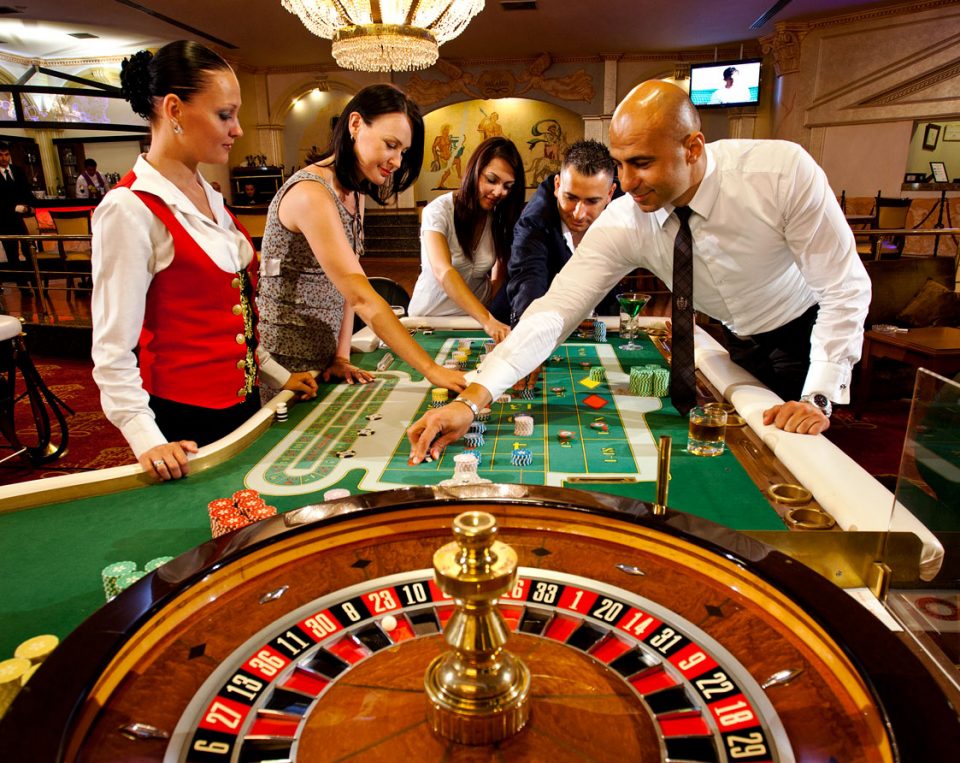
Casino experiences have enthralled players for centuries, progressing from simple pastimes to complex experiences that combine fortune, skill, and entertainment. From the early beginnings of gambling in civilizations such as ancient Mesopotamia and Rome to the glitzy corridors of contemporary casinos, the evolution of these games shows much about our nature and our interaction with luck. As cultures have merged and innovation has progressed, casino games have transformed, mirroring the changes in society and advancements in gameplay.
The initial iterations of gambling likely included simple dice games and placing bets on the outcomes of sports competitions. Over time, these basic forms of gambling grew into better-organized games like card games, the game of roulette, and the variety of one-armed bandits that line the premises of casinos today. Each era brought its distinct regulations, visual styles, and cultural importance. Today, casino games persist in evolving with the rise of internet-based platforms, enabling players from everywhere to engage in a common experience, further fusing the traditional with the digital age.
Early Roots of Gambling Activities
Gambling games have roots that stretch back to ancient civilizations, where wagering was deeply integrated in social traditions and social customs. The earliest known instances of betting appeared in Mesopotamia around three thousand BC, featuring basic dice games made from bone bones. These initial activities laid the basis for more complex betting games, demonstrating humans’ natural desire to seek wealth and amusement through chance.
As societies evolved, so did their gambling interests. https://789club01.net In ancient Chinese culture, around 2300 BC, objects were discovered that resembled primitive rudimentary versions of a lottery game game. More organized forms of gambling emerged in the ancient Roman civilization, where activities of luck were a common recreation, often occurring in social gatherings. The ancient Romans developed various betting games, which included die and table activities, illustrating the pervasive nature of gambling across various social classes.
With the flow of time, these primitive games influenced the development of contemporary casino games. In the medieval period, playing card activities emerged prevalent in European culture, paving the way for the professional gambling establishments we know today. The change from informal betting to formal gambling in taverns and private houses marked a major change in how people interacted with activities of luck, leading to the eventual creation of casinos as dedicated venues for gambling.
The Growth of Modern Casino Gaming
The late 1960s and 1970s marked a crucial change in the realm of gambling games, fueled by technological advancements and shifts in cultural attitudes towards gambling. The emergence of computers and the internet transformed the way players engaged with their beloved games. Online casinos emerged, enabling players to enjoy traditional table games like poker and 21 from the comfort of their houses. This emerging digital landscape not only broadened access to casino games but also drew in a younger audience who found the convenience and diversity appealing.
As digital gambling gained popularity, so did developments in gaming technology. The creation of sophisticated software and visual elements changed classic casino games into captivating experiences. Players could now interact with live live dealers through live feeds, bringing the atmosphere of brick-and-mortar casinos directly into their living rooms. This fusion of live gaming with online platforms created a new hybrid model that elevated the social aspect of playing, making it possible for people to connect and compete with fellow gamers around the globe.
Additionally, the emergence of mobile gaming substantially changed the gambling environment. With the widespread use of smartphones and tablets, gamblers can access their favorite gaming options everywhere, at any time. Mobile applications offer a extensive range of games customized for mobile screens, serving the fast-paced daily life of contemporary gamers. This accessibility has led to increased involvement in gambling, contributing to the surge of the gaming industry. As a result, the outlook of gambling continues to develop, adjusting to new technologies and changing consumer preferences.
How Technology Influences Casino Games
The evolution of technology has greatly changed casino games, improving the overall experience for players for players around the world. As the internet emerged, online casinos emerged, allowing players to enjoy their favorite games from the safety of their own homes. This change not only made casino games more available but also expanded the variety of games available, as online platforms could host numerous variations of traditional games without the physical constraints of brick-and-mortar establishments.
The rise of mobile technology further transformed the casino gaming landscape. With the proliferation, players can to engage in casino games whenever and wherever they want. This flexibility has resulted in the development of dedicated mobile applications and optimized websites that provide seamless gaming experiences. Additionally, innovations such as live dealer games have delivered the genuine feel of a casino into players’ living rooms, bridging the gap between physical and online gaming.
Moreover, advancements in AI and VR are paving the way for the next generation of casino games. AI enhances game design and player interaction, creating tailored experiences based on user behavior and preferences. Meanwhile, virtual reality provides immersive environments where players can engage in a simulated casino setting, making the gaming experience more engaging and lifelike. As technology continues to evolve, the future of casino games looks promising, filled with endless possibilities for advancements and entertainment.